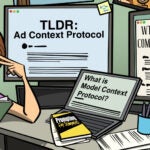 “Data-Driven Thinking” is written by members of the media community and contains fresh ideas on the digital revolution in media.
“Data-Driven Thinking” is written by members of the media community and contains fresh ideas on the digital revolution in media.
Today’s column is written by Michael Nevins, chief marketing officer at Smart.
The past month has been topsy-turvy in digital universal ad ID circles. First we heard that AppNexus would drop out of the Advertiser ID Consortium to reset its priorities in an AT&T universe, which felt like a major blow to its viability.
This was shortly followed by news of progress for demand-side platform The Trade Desk’s version of the same concept. One step back, one step forward?
While the Ad ID Consortium was hatched with good intentions and seemed like a great idea on the surface, in retrospect, it was probably doomed to failure. Digital advertising is a multibillion-dollar industry at a fairly mature stage in its evolution, and it is unlikely that any cooperative universal ID will play a significant role in its growth.
Any consortium needs the scaled, larger market leaders banding together to fulfill on the promise of the initiative. Unfortunately, at this stage of the game, these players feel they have too much at stake to be unselfish and take a collaborative risk.
I’ve only seen coordinated industry efforts work during nascent stages. In the early ‘80s, the manufacturers of electronic musical instruments such as synthesizers and drum machines were extremely competitive, yet knew they needed a common communications protocol to allow the devices of one or more manufacturers to “talk” to each other. One manufacturer came up with a simple protocol that would be inexpensive to implement. Called Musical Instrument Digital Interface (MIDI), it was “given” to the industry, which created a nonprofit association to maintain and evolve the spec over the years. These competitors realized that if MIDI were successful, it would drive the industry to unprecedented growth. They were right, and MIDI is the de facto standard to this day.
In ad tech, there isn’t enough trust and, more centrally, not enough growth potential for all boats to rise with this particular tide. Big players don’t always play well together. And when they don’t like the game, they bail, as MediaMath and AppNexus did. What makes a universal ID even more challenging is that it would have to support entities with differing interests, including advertisers, publishers and tech platforms.
Other options
On the bright side, there are other pockets of collaboration with potential. The likely scenario is that some initiatives will sustain, requiring platforms to support and combine several user identity solutions.
DigiTrust, now a part of the powerful IAB Tech Lab, is independent and open. Its reliance on publisher first-party data is very powerful, but it also means it will take a lot of time to scale up as it requires publisher adoption en masse. [See IAB’s comments below.] The OpenRTB 3.0 standard may actually prove to be a positive development in this area by standardizing the integration of multiple IDs in the bidding transactions. It will certainly take some time before OpenRTB 3.0 sees wide adoption.
Standalone for-profit entities such as ID5 are also a good idea. In Europe, ID5 is getting good traction because it is built upon a business model that is based on transparency and a nontransactional approach. It is neutral, meaning it is not involved in media or data trading, which is critical to adoption and scale. In the short-term, it improves match rates and revenues while reducing waste for participating vendors and publishers. Over the long term, it provides a “common language” between ad tech vendors, somewhat like the MIDI example. The difference here is that ID5 is building something difficult and requires significant investment and resources.
So where does this leave us? We are all trying to figure this problem out within our own small corners of the industry, operating outside of the scaled walled gardens. Will we ever have the kind of scale that can offer a truly universal alternative? I suspect not. While I remain bullish on our industry, I remain highly skeptical about our ability to play well together. Plus, we should never underestimate the power of financial reward that could go to the private company that figures this out.
This doesn’t necessarily mean that the status quo must continue, with the biggest players continuing to gobble up new market growth, leaving everyone else fighting inefficiently for the scraps. Actually, this current situation presents a great opportunity to innovate and reinvent the business model that will make a fragmented ecosystem effectively counteract the walled gardens. Let’s hope for a world where data builds bridges and not walls.
Follow Smart (@SmartAdServerEN) and AdExchanger (@adexchanger) on Twitter.
Editor’s note: This column was updated to clarify The Trade Desk’s universal ad ID effort.












